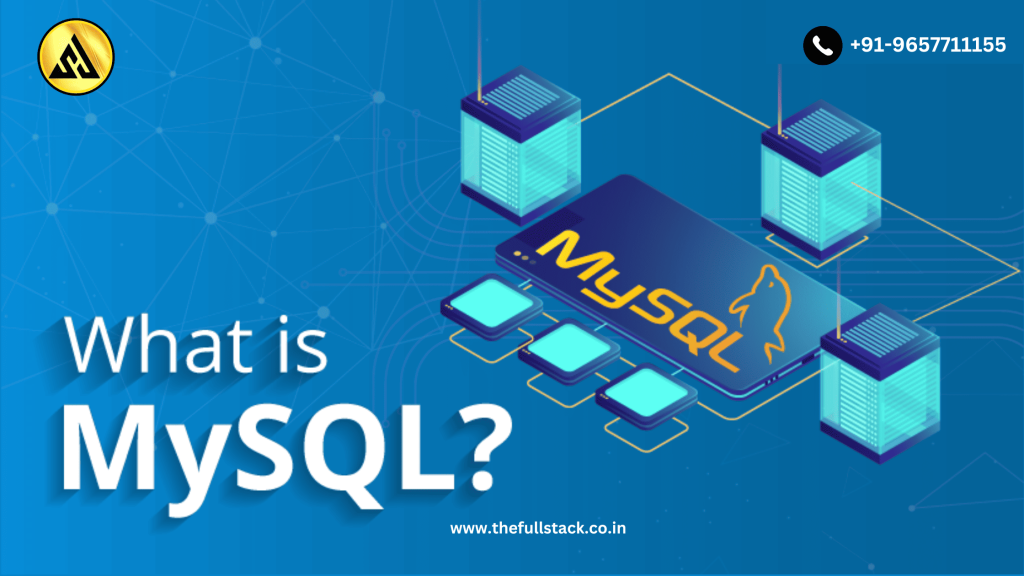SQL (Structured Query Language) is used by MySQL, a well-known open-source relational database management system (RDBMS), to manage databases. MySQL, on the other hand, is a particular database system that is free to use and compatible with a number of computer languages.
- Oracle Corporation created MySQL, an open-source relational database management system (RDBMS).
- It is renowned for its dependability, speed, and user-friendliness and manages databases using Structured Query Language (SQL).
- MySQL is widely used for a wide range of applications, from enterprise systems to small websites.
Why Use MySQL
MySQL is a popular choice for managing relational databases for several reasons:
- MySQL is free to use and has a sizable development community that works to make it better because it is open-source software.
- Relational: MySQL is based on the relational database model, which enables users to arrange data into tables with rows and columns for effective data retrieval and storage.
- Reliability: MySQL has a long history and is renowned for its dependability and stability.
- Performance: Because MySQL is performance-optimized, it can effectively manage big databases and high transaction volumes.
- Scalability: To handle increasing data and user loads, MySQL can scale both horizontally and vertically. Using strategies like sharding or replication, you can increase the resources on a single server or divide the workload among several servers.
- Compatibility: MySQL is widely supported by many programming languages, frameworks, and tools. It offers connectors and APIs for popular languages like PHP, Python, Java, and more, making it easy to integrate with your existing software stack.
- Security: MySQL provides robust security features to protect your data, including access controls, encryption, and auditing capabilities. With proper configuration, you can ensure that only authorized users have access to sensitive information.
Who Uses MySQL?
MySQL is a widely-used relational database management system (RDBMS) that caters to various user groups, from small businesses to large enterprises. Here’s a look at who uses MySQL:
- Small to Medium-Sized Businesses (SMBs): MySQL is well-liked by SMBs because of its affordability, usability, and adaptability. These companies use MySQL to manage their operational databases, sales transactions, and client information.
- Big Businesses: MySQL’s scalability and dependability make it a popular choice for big businesses. MySQL is used by businesses like Facebook, Google, and Adobe to manage massive databases and heavily used apps.
- Web developers: MySQL’s smooth integration with well-known web development tools like PHP and JavaScript makes it a choice among web developers. From blogs to e-commerce platforms, it supports a wide range of websites and web apps.
- Educational Institutions: MySQL is widely used in classrooms to teach SQL and database administration. Because it is open-source, it is an affordable option for educational settings.
Applications of MySQL
MySQL has used in various applications across a wide range of industries and domains, because of to its versatility, reliability, and performance. Here are some common applications of MySQL:
E-commerce: To manage product catalogs, customer information, orders, and transactions, e-commerce platforms heavily rely on MySQL.
Content Management Systems (CMS): MySQL serves as the backend database for a number of well-known CMS platforms, storing user profiles, comments, configuration settings, and website content.
Financial Services: MySQL is used to manage transactional data, client accounts, and financial records in financial applications such as banking systems, payment processing platforms, and accounting software.
Healthcare: Patient records, medical histories, treatment plans, and diagnostic data are all stored and managed using MySQL in healthcare applications.
Social media: User profiles, postings, comments, likes, and relationships are all stored in MySQL’s backend databases on numerous social networking sites.
Conclusion
MySQL is a popular and free RDBMS system that uses SQL to manage and interact with data. As a universal query language, SQL emphasizes its essential position in relational database operations and offers a wide range of features for database management across various systems.
It might be helpful:

